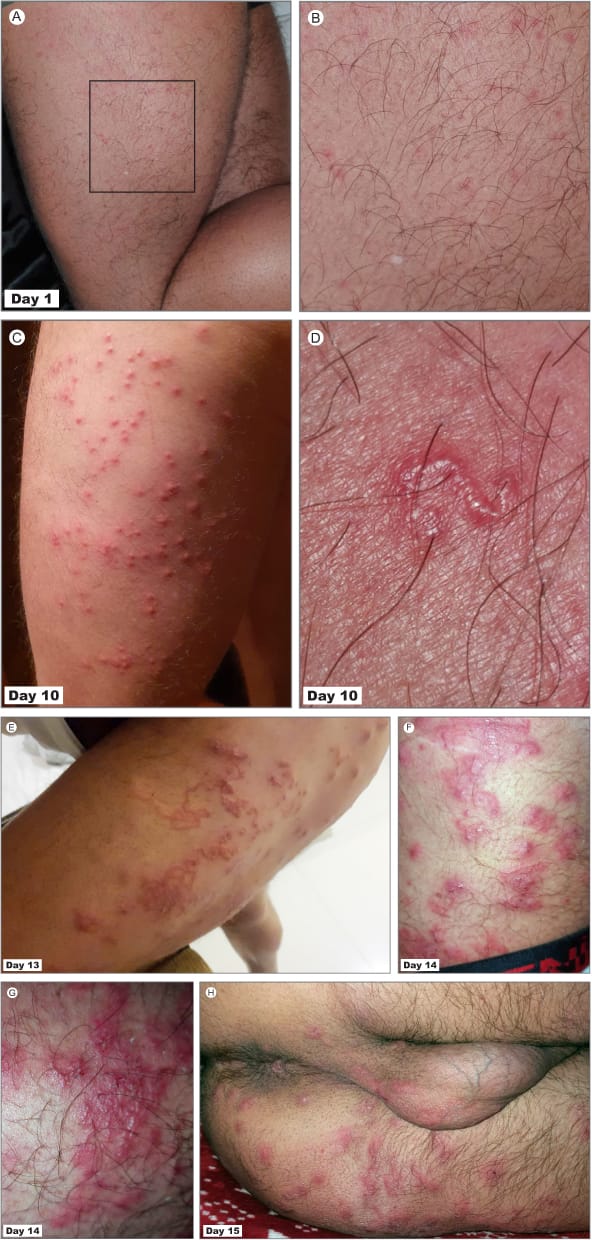Hookworms are common intestinal parasites found in animals, particularly dogs and cats. While they typically inhabit the digestive systems of these pets, they can pose a threat to humans through a condition known as cutaneous larva migrans (CLM). This zoonotic disease occurs when the larval stage of hookworms penetrates human skin, causing an itchy and uncomfortable reaction. Understanding how zoonotic hookworms spread, their symptoms, and effective prevention strategies is crucial for pet owners and anyone who spends time in environments where these parasites may be present.
What are Zoonotic Hookworms and CLM?
Zoonotic hookworms are parasitic roundworms that typically reside in the intestines of animals like dogs and cats. These parasites lay eggs, which are then expelled from the animal’s body in their feces. In favorable environmental conditions, these eggs mature and hatch, releasing infective larvae into the soil or sand.
Cutaneous larva migrans (CLM) is the disease caused when these larvae burrow into human skin. The larvae create visible, raised red lines or tracks as they migrate beneath the skin’s surface. This burrowing action is what leads to the characteristic severe itching associated with CLM. While CLM usually resolves on its own within a few weeks as the parasite dies, it can be quite distressing. In rare instances, certain hookworm species may migrate to deeper tissues, potentially affecting organs like the lungs, intestines, or even the eyes.
How Zoonotic Hookworms Spread to Humans
The transmission of zoonotic hookworms to humans is a direct result of contact with contaminated soil or sand. The lifecycle involves:
- Animal Feces: Infected dogs and cats excrete hookworm eggs in their feces.
- Larval Development: Outside the host, these eggs develop into larvae in the soil or sand.
- Skin Penetration: When humans come into direct contact with contaminated soil or sand, particularly with unprotected skin, the larvae can attach to the skin and begin to burrow. This commonly occurs when walking barefoot or sitting with exposed skin in areas frequented by infected animals.
Signs and Symptoms of CLM
The primary symptom of CLM is intense itching at the site of larval penetration. As the larvae move and burrow under the skin, they create visible, raised, and often winding red tracks. These tracks are the most distinctive sign of infection. While these symptoms are uncomfortable, they typically indicate that the parasite is confined to the skin and will eventually die off.
Risk Factors and Geographic Distribution
Cases of CLM are frequently reported in individuals who have traveled to tropical and subtropical regions where the environmental conditions allow hookworm larvae to survive and thrive in the soil. However, zoonotic hookworms are not exclusive to these areas and can be found globally. In the United States, for example, they are more prevalent on the East Coast compared to the West Coast. Any situation involving bare skin contact with contaminated soil or sand, especially in areas with a significant animal population, presents a risk.
Prevention Strategies for Zoonotic Hookworm Infection
Preventing zoonotic hookworm infection primarily involves minimizing contact with contaminated environments and ensuring the health of our pets. Key prevention measures include:
- Proper Waste Disposal: Promptly clean up and dispose of animal waste to prevent eggs from contaminating soil and hatching.
- Veterinary Care for Pets: Ensure that dogs and cats receive regular veterinary check-ups and appropriate deworming treatments as recommended by a veterinarian. This helps reduce the parasite load in pet populations.
- Protective Footwear: Always wear shoes when walking in areas where hookworm contamination is possible, such as parks, beaches, or sandy areas. Avoid walking barefoot on soil or sand, especially in regions known to have a higher prevalence of hookworms.
- Travel Precautions: When traveling to tropical or subtropical climates, particularly those with beaches, be diligent about wearing shoes and using protective coverings like towels or mats to prevent direct skin contact with sand or soil.
Diagnosis and Treatment of CLM
If you suspect you have contracted zoonotic hookworm and are experiencing symptoms of CLM, it is important to consult with a healthcare provider. They will typically diagnose the condition by visually examining your skin for the characteristic itchy, red tracks, usually found on the legs or feet.
Currently, there is no specific blood test for zoonotic hookworm infection. However, your healthcare provider may inquire about your recent travel history and activities to aid in making an accurate diagnosis.
The good news is that most cases of CLM resolve on their own within approximately 5 to 6 weeks as the hookworm larvae naturally die. In some instances, a healthcare provider may prescribe antiparasitic medications to help expedite the killing of the hookworms. If the skin has become damaged or irritated, antibiotics may also be prescribed to treat any secondary bacterial infections. By taking simple preventative measures and seeking medical advice when symptoms arise, the risk and impact of zoonotic hookworm infection can be significantly managed.

